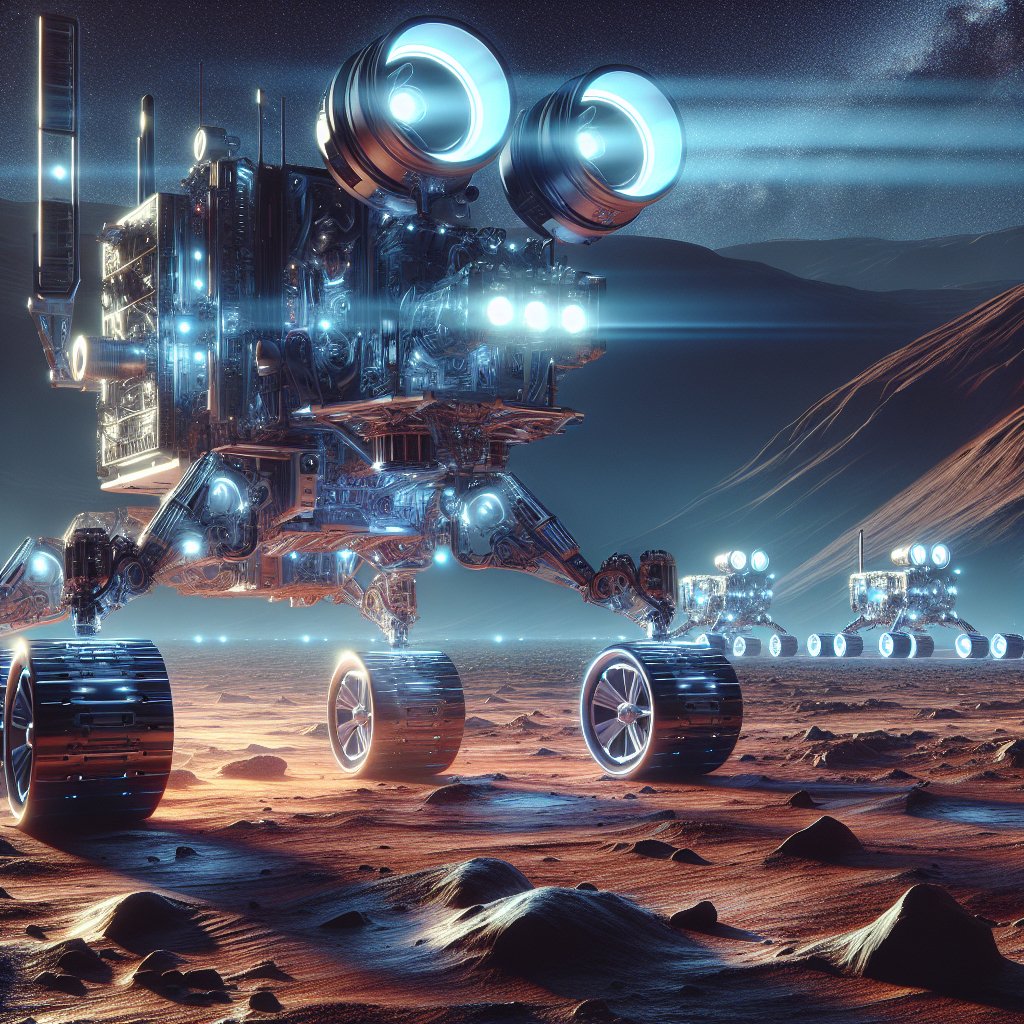The exploration of Mars has been a focal point of space agencies around the world, and the next generation of Mars rovers promises to push the boundaries of what we know about the Red Planet. With advancements in technology and a deeper understanding of Mars’ environment, upcoming missions are set to revolutionize our exploration efforts. This article delves into the exciting developments and expectations surrounding the next Mars rovers.
Technological Innovations in Mars Rovers
The next wave of Mars rovers is expected to incorporate cutting-edge technology that will enhance their capabilities and allow for more comprehensive exploration. One of the most significant advancements is in the area of autonomous navigation. Future rovers will be equipped with sophisticated AI systems that enable them to make real-time decisions without waiting for instructions from Earth. This autonomy is crucial given the communication delay between Earth and Mars, which can be up to 24 minutes one way.
Another technological leap is in the area of power systems. Traditional solar panels have been the primary energy source for past rovers, but the next generation will likely utilize more efficient and reliable power sources, such as advanced nuclear batteries. These power systems will allow rovers to operate for extended periods, even during the harsh Martian winters when sunlight is scarce.
Moreover, the incorporation of advanced scientific instruments will enable these rovers to conduct more detailed analyses of the Martian surface and atmosphere. Instruments capable of detecting organic compounds, analyzing soil samples at a microscopic level, and even drilling into the Martian crust are expected to be part of the new rover payloads. These tools will provide invaluable data that could answer fundamental questions about the planet’s history and its potential to support life.
Mission Objectives and Scientific Goals
The primary objective of upcoming Mars rover missions is to search for signs of past or present life. This goal is driven by the tantalizing evidence of water in Mars’ past and the discovery of complex organic molecules by previous missions. The next rovers will focus on regions of Mars that are believed to have once been habitable, such as ancient lake beds and river deltas.
In addition to the search for life, these missions aim to gather data that will aid in future human exploration. Understanding the Martian environment, including its weather patterns, radiation levels, and surface composition, is crucial for planning manned missions. The rovers will also test new technologies that could be used in human exploration, such as in-situ resource utilization (ISRU) systems that can produce oxygen and fuel from Martian resources.
Another significant scientific goal is to study Mars’ geology and climate history. By analyzing rock formations and sediment layers, scientists hope to reconstruct the planet’s past climate and understand the processes that have shaped its surface. This information is vital for understanding not only Mars but also the broader history of our solar system.
International Collaboration and Future Prospects
The exploration of Mars is increasingly becoming a collaborative effort involving multiple countries and space agencies. The European Space Agency (ESA), NASA, and other international partners are working together to share resources, expertise, and data. This collaboration is exemplified by missions like the ExoMars program, which combines the efforts of ESA and Roscosmos to explore the Martian surface and atmosphere.
Looking ahead, the future of Mars exploration is bright. With plans for sample return missions, which aim to bring Martian soil and rock samples back to Earth for detailed analysis, scientists are on the cusp of making groundbreaking discoveries. These samples could provide definitive evidence of past life on Mars and offer insights into the planet’s geological history.
Furthermore, the prospect of human missions to Mars is becoming increasingly realistic. Space agencies and private companies are actively developing the technology and infrastructure needed to send humans to the Red Planet. The next generation of Mars rovers will play a crucial role in paving the way for these missions by providing the data and testing the technologies necessary for human survival on Mars.
In conclusion, the next Mars rovers represent a significant step forward in our quest to explore and understand the Red Planet. With advanced technology, ambitious scientific goals, and international collaboration, these missions promise to unlock new mysteries and bring us closer to answering the age-old question of whether life exists beyond Earth.










